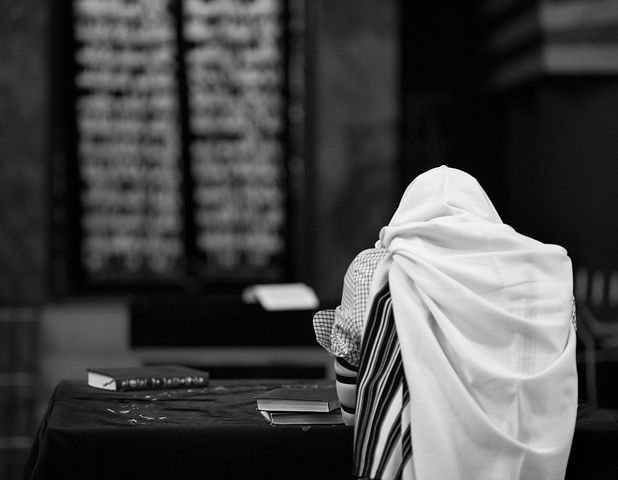 |
|
BLOG
You Donít Know What You've Got ĎTil Itís Gone
Every night, in my dreams, I walk around like an ordinary person.
Then I awaken and I struggle to get up off the makeshift bed I've been using since my surgery. The realization that it is a blessing to be able to walk from one place to another without pain or difficulty and to move freely and accomplish things in the world, hits me hard. Exactly because I’m in a stage where I can’t do these things.
Like many others, I have long taken these blessings for granted. This is true even though I thank God for them each morning.
In a traditional Jewish prayer book, the morning service opens with Birchot haShachar - Morning Blessings. This section includes a total of 19 blessings for ordinary things, like the ability to go to the bathroom unassisted and the ability to study Torah daily.
The second section includes 15 specific blessings in which we thank God for the ability to distinguish between night and day, for the ability to see, for the clothes we have, for the ability to move normally and so forth.
For a person whose body functions well, these are easy blessings to breeze through. Of course we’re grateful. Who wouldn’t agree that these are things to be grateful for? Having them taken away has been a real lesson in appreciation.
As I sit here, typing on a special device because I can’t sit at my desk and type as I usually would, I feel the reality of this loss strongly. Humbly, I admit that if my body was functioning normally, it would be hard for me to relate to this in any real way.
I think of how many times I have heard about someone ill, someone with chronic pain, someone recovering from surgery, someone bed-ridden. I felt a kind of sympathy. Of course I did. But I didn’t really get it. Because it wasn’t happening to me.
There’s a famous Jewish story about a charity collector in Russia. During the coldest part of winter, he went to the home of a wealthy man to collect on behalf of a family in need. When the wealthy man came to the door, the charity collector was invited in. Instead, the charity collector asked the prospective donor to step outside.
“If I come into your nice warm home and tell you about the family for whom I am collecting, you may well agree to give me a small donation. But if I ask you to stand outside for just a few minutes, you will feel what they feel every minute of every day and their need will become real to you,” said the wise charity collector.
“If I come into your nice warm home and tell you about the family for whom I am collecting, you may well agree to give me a small donation. But if I ask you to stand outside for just a few minutes, you will feel what they feel every minute of every day and their need will become real to you,” said the wise charity collector.
There is every reason to think that I will make a full recovery, God-willing, and that I will soon be able to return to the activities of normal life. In the meantime, I am learning not to take my ordinary abilities for granted. I am learning that someone else’s pain can be a catalyst for appreciating the many blessings that God bestows upon me at every moment.
And I am learning that sometimes, losing something valuable is the best way to appreciate having had it.
---
Have something to add? We'd love to hear from you. Please comment below to share.
If you have a question about Jewish values that you would like to ask rabbis from multiple denominations, click here to enter your question. We will ask rabbis on our panel for answers and post them. You can also search our repository of over 700 questions and answers about Jewish values.
For more great Jewish content, please subscribe in the right hand column. Once you confirm your subscription, you'll get an email whenever new content is published to the Jewish Values Online blog.
For more great Jewish content, please subscribe in the right hand column. Once you confirm your subscription, you'll get an email whenever new content is published to the Jewish Values Online blog.
|
|
|
Jewish Values Online
Home | Search For Answers | About | Origins | Blog Archive Copyright 2020 all rights reserved. Jewish Values Online N O T I C E
THE VIEWS EXPRESSED IN ANSWERS PROVIDED HEREIN ARE THOSE OF THE INDIVIDUAL JVO PANEL MEMBERS, AND DO NOT
NECESSARILY REFLECT OR REPRESENT THE VIEWS OF THE ORTHODOX, CONSERVATIVE OR REFORM MOVEMENTS, RESPECTIVELY. |
 Can a non-Jew lead prayers?
Can a non-Jew lead prayers?